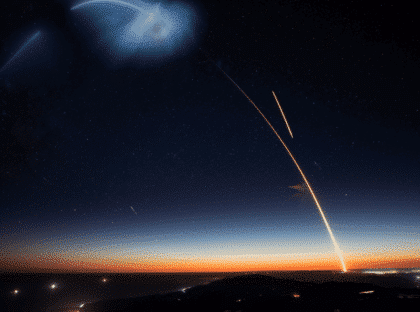
By Dr. Robert Zubrin
Quillette, 05.30.23
The French historian Fernand Braudel remarks in Out of Italy that “decadence” is what occurs in a civilization when it rejects the ideas and ideals responsible for its origin and growth. In her recently published book, Astrotopia: The Dangerous Religion of the Corporate Space Race, Mary-Jane Rubenstein, Professor of Religion and Science in Society at Wesleyan University, offers just such a bold rejection of everything that Western humanist civilization stands for or has ever stood for. If you think that the world has had quite enough of freedom, progress, science, and reason, this is the book for you.
Professor Rubenstein opens her book with an attack on space entrepreneurs Elon Musk and Jeff Bezos, whom she describes as representing the leading edge of a new tribe of robber barons planning to exploit and ruin the pristine solar system for their own greedy ends. However, her real target is not the corporate space race but the very idea that the development of other planets—or indeed our own planet—to meet human needs constitutes a positive goal.
In making this critique, Rubenstein draws from some of the later writings of the medieval historian Lynn White Jr. (1907–1987). White was a follower of the school of thought pioneered by earlier historian Charles Homer Haskins (1870–1937), who, in his seminal 1927 work The Renaissance of the 12th Century soundly refuted the commonly accepted Enlightenment conceit that the period between the fall of the western Roman Empire and the Italian Renaissance was a “dark age” during which little progress in the arts, literature, or anything else of much interest occurred. White backed up Haskin’s arguments for medieval cultural advances with detailed studies of extensive medieval progress in the invention and application of practical technology—including crop rotation, the lateen sail, the stirrup, the wheelbarrow, the spinning wheel, the hand crank, water-driven mills, and windmills—that advanced medieval Europeans far beyond anything achieved by the ancients.
But White took matters further in his seminal April 1940 Speculum article “Technology and Invention in the Middle Ages,” ascribing Western theology’s “activist” tradition, its “implicit assumption of the infinite worth of even the most degraded human personality,” and its “repugnance towards subjecting any man to monotonous drudgery” to the West’s primacy in technology. It was these Christian ideas, White said, that drove medieval Europeans to their unprecedented feats of technological wizardry. “The chief glory of the later Middle Ages was not its cathedrals or its epics or its scholasticism: it was the building for the first time in history of a complex civilization which rested not on the backs of sweating slaves or coolies but primarily on non-human power.”
To read Dr. Zubrin’s full commentary, please click here.
Image: SpaceX


